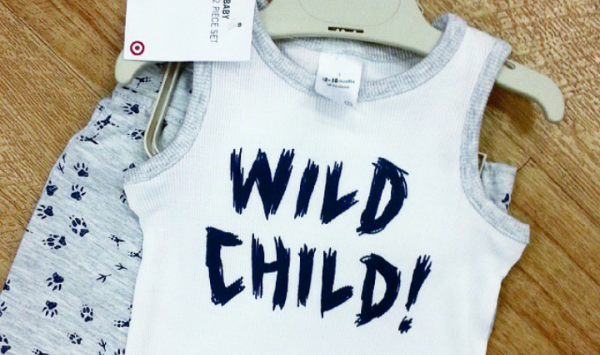

Wooden children’s toys, splatter paint covered T-shirts and designer chairs don’t appear to have much in common.
But these products have all been created by small businesses that claim a larger business has ripped off their design.
Over the past week, Kmart has been accused of copying Melbourne small business Tiger Tribe’s wooden puppy toy; Target has been under fire for allegedly ripping off a children’s T-shirt design by KaPow Kids, children’s leggings by Peaches and Keen and another children’s T-shirt by Mini & Maximus; and Luxmy Furniture has claimed various big businesses have stolen its designs.
In most cases the small business which alleges it has been ripped off has been at a loss as to what to do about the copying.
Naomi Green, the co-owner of Tiger Tribe and a former intellectual property lawyer, told SmartCompany small businesses are put off by the costs of pursuing litigation.
“We chose not to pursue any legal action because as a small company, we did not have the resources – in time or money to invest in the case,” she said.
“It costs too much money to pursue these things, even to get a lawyer to write a letter could cost $1000 or $2000.”
But Stephen Stern, partner at law firm Corrs Chambers Westgarth, says small businesses do have legal recourse.
Here are his tips for protecting your business and pursuing businesses that are ripping you off:
1. Get a patent
If your product is an invention, Stern says you can get a patent to protect your rights.
2. Register your brand as a trademark
If your product isn’t an invention but instead is a design such as a toy, T-shirt or chair, you can protect your brand by registering it as a trademark.
“That’s quite a simple step provided your brand is not just descriptive,” Stern says.
For example, the brand “Telstra” is easy to protect by trademark as it is an invented word, but the brand “Target” is more difficult.
Luxmy Furniture claims one of the businesses ripping it off copied one of its products right down to the branding on the chair.
“If they copied the brand and all then you can take an action based on trademark infringement,” Stern says.
3. Build a reputation
“In some cases even if you haven’t registered your brand and someone uses it, and you have a reputation by sales or advertising, you can claim misleading conduct and passing off,” Stern says.
He says you don’t have to prove your business has millions of dollars in sales, just a reputation in the marketplace which is protected under Australian Consumer Law.
“With furniture or clothing, it’s not easy to say someone’s clothing is so distinctive that you can look at it and say who has made it,” Stern says.
“Ken Done used to be able to do it as he had very distinctive jumpers. That is the level of distinctiveness you need to have.”
4. Register your designs
Stern says you can also protect designs by registering them.
“You have to register before you show them to the public then sell them,” he says.
“It’s a few hundred dollars per application, so if you are churning out a lot of new items each season it does cost a lot of money,” he says.
5. Look to copyright
If your business produces a new shape or brand new form of clothing, Stern says you would have copyright in the three dimensional item.
“The other aspect of clothing is potential copyright in a pattern or print,” he says.
6. Write a letter of demand
If you do find you are being ripped off, Stern says it’s worthwhile writing a letter of demand and you can do this yourself or engage a lawyer.
“Lawyers are more effective in writing these letters,” he says.
“Lawyers know what grounds to claim and what claims you can properly make. They know how strong your case is and whether you have a claim or not.”
Stern says if you don’t send your letter of demand via a lawyer you are most likely to be ignored, but acknowledges it is more expensive to engage legal representation.
7. Consider suing
Stern says if you are being ripped off you need to consider whether you should take the dispute all the way to court.
“It depends how much money is at stake and how important it is to your business,” he says.
“If the copier has made tens of thousands of products there might be a fair bit of money at stake for you.”
Stern says he has very rarely sent a client away and said it’s not worth their while doing anything.
“At the very least you are staking your claim and saying ‘keep copying at your own risk, I reserve my rights’.”


COMMENTS
SmartCompany is committed to hosting lively discussions. Help us keep the conversation useful, interesting and welcoming. We aim to publish comments quickly in the interest of promoting robust conversation, but we’re a small team and we deploy filters to protect against legal risk. Occasionally your comment may be held up while it is being reviewed, but we’re working as fast as we can to keep the conversation rolling.
The SmartCompany comment section is members-only content. Please subscribe to leave a comment.
The SmartCompany comment section is members-only content. Please login to leave a comment.